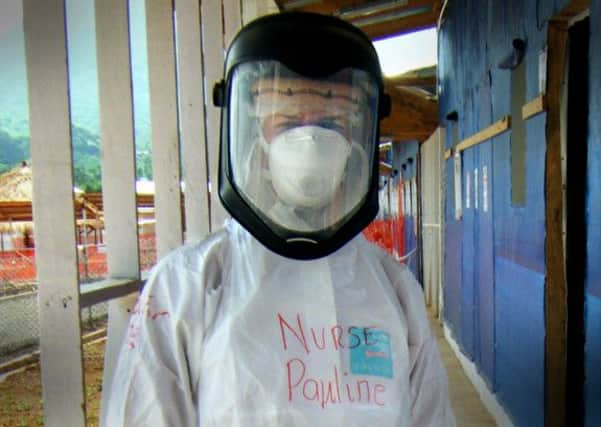Two cases of possible Ebola tested at Leeds hospital


Leeds Teaching Hospitals NHS Trust has confirmed it has dealt with two cases – one between Christmas and New Year and another today – and followed protocol to find that both patients tested negative.
The health scares came as MPs were updated on the UK’s ability to cope with Ebola by Health Secretary Jeremy Hunt today, as a British nurse remained critically ill in a north London hospital with the virus.
Advertisement
Hide AdAdvertisement
Hide AdSave the Children has promised a review into how nurse Pauline Cafferkey, 39, contracted the disease at the Sierra Leone treatment centre she was volunteering at, while the Government’s Chief Medical Officer, Dame Sally Davies, has acknowledged that questions had been raised about the airport screening procedure for Ebola, which Mrs Cafferkey passed.
A Public Health England spokeswoman, said that the most recent tests to the Leeds patient were done “as a precaution”.
She said: “We are confident that all appropriate actions are being taken to ensure there is no risk to public health.”
It is believed that the first patient was treated at Leeds St James’ Hospital’s Infectious Diseases Ward, which is the first port of call for suspected Ebola patients in the Yorkshire region due to its facilities, before test samples were sent to PHE for analysis.
Advertisement
Hide AdAdvertisement
Hide AdAccording to PHE 113 tests for Ebola were carried out between May 26 and December 4 2014 in the UK – as few as three tests per week in late November.
Addressing MPs today Health Secretary Jeremy Hunt said: “Both the Chief Medical Officer and the NHS England medical director, Professor Sir Bruce Keogh, are satisfied that at this stage we have made sufficient preparations.
“However, they stress that although the risk to the public remains low, we must remain vigilant and be constantly prepared to adjust and improve.”
Pauline Cafferkey is the second Briton to test positive and the first to do so on UK soil after nurse William Pooley, 29, contracted Ebola while volunteering in Sierra Leone in August before getting the all-clear following treatment at the Royal Free.
Advertisement
Hide AdAdvertisement
Hide AdMrs Cafferkey first raised concerns about her temperature when she returned to Heathrow Airport last Sunday, but despite undergoing seven temperature checks she was given the all-clear to fly to Glasgow, where she lives.
The following morning she was diagnosed with Ebola and placed in isolation at Gartnavel Hospital campus in Glasgow before being flown south.
Responding to concern over whether airport screening for Ebola was failing, Prime Minister David Cameron said he was seeking advice over whether more measures were needed.
Speaking to BBC1’s Andrew Marr Show, he said: “If the Chief Medical Officer says we need a system of quarantine or anything like that, then we should put that in place. But it is important to listen to the medical experts and then make the decision.”
SYMPTOMS ARE SIMILAR TO FLU
Advertisement
Hide AdAdvertisement
Hide AdA person infected with Ebola will typically develop a fever, a headache, joint and muscle pain, a sore throat, and intense muscle weakness.
Other more common conditions such as flu, typhoid fever and malaria have similar symptoms in the early stages so early medical assessment is important. These symptoms start between two and 21 days after becoming infected.
Around 8,000 people have died after contracting Ebola in recent months.
People who have recently visited West Africa and are experiencing symptoms should call 111 or 999 or visit www.nhs.uk/conditions/ebola-virus for further information.